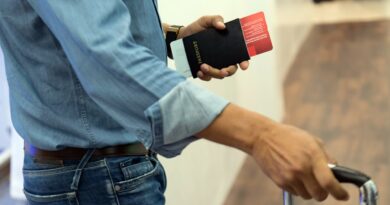UK citizenship more distant for some EU nationals with ‘settled status’
Some EU citizens who have settled in the UK may have to wait longer than anticipated to naturalise as British citizens, under government guidance published in May.
To be eligible for UK citizenship, a person has to be married or in a civil partnership with a British citizen and have lived in the country for 3 years, or have obtained “indefinite leave to remain, settled status under the EU Settlement Scheme or a permanent residence document” proving they have lived in the country for 5 years, the government website says. But in some cases ‘settled status’ may not be sufficient to prove a person has been “legally resident” for the qualifying period, it has recently emerged.
Simplified status
The settled status scheme was put in place to replace the EU’s permanent residence system after Brexit.
Under the EU’s system, citizens from the European Union, the European Economic Area (EEA) and Switzerland, as well as their family members, could acquire permanent residence after “having exercised treaty rights” in the UK for 5 years. This typically meant having been economically active.
People who had been economically inactive – even temporarily – (for example students, spouses or people looking for a job) could also qualify if they could prove to be self-sufficient and covered by comprehensive sickness insurance (CSI) for the relevant period in order to not burden public services.
No document was needed to prove they had acquired the right to reside permanently in the UK, but EU, EEA and Swiss nationals needed a permanent residence card if they decided to apply for British citizenship.
After the Brexit referendum, many Europeans decided to naturalise as British to remove the uncertainty associated with their new immigration status. It then became clear people were not aware about the self-sufficiency requirement. As result, many naturalization applications by EU citizens who were or had been economically inactive were rejected because applicants did not have CSI and were therefore in breach of UK immigration rules.
The problem was partly resolved with the set up of the EU settlement scheme. To qualify for settled or pre-settled status, EU, EEA and Swiss citizens, and their family members, only have to prove that they have lived in the UK for 5 years. The system does not require to be economically active or to have CSI.
Old requirements for UK citizenship
When the EU settlement scheme was created, the British government also said that EU, EEA and Swiss nationals could use it to apply for UK citizenship, just like permanent residence (EU citizens must have lived in the UK for 12 months after getting permanent residence of settled status before applying for citizenship).
But the rules for acquiring citizenship have not changed: applicants still have to prove they have been “lawfully resident” in the UK for 5 years under the definition of EU regulations. That is, being economically active or having CSI for periods of inactivity.
This is not communicated on official web pages and only on May 15 the British government published guidance to clarify the position of EU, EEA and Swiss nationals who have acquired settled status but have not “exercised EU treaty rights” for the entire qualifying period.
The document tells Home Office staff how to apply “discretion” when considering applications for naturalisation. It says that the settled status “will not confirm that they [EU, EEA and Swiss nationals] were here [in the UK] lawfully under the EEA Regulations during that time, as defined by the British Nationality Act 1981 as this is not a requirement of the EU settlement scheme”. Therefore, staff may “need to request further information from the applicant.”
Guidance then suggests how to apply discretion:
“Following the introduction of the EU Settlement Scheme you may increasingly see applications from EEA or Swiss nationals who have not fully complied with additional requirements under the EEA regulations, such as having comprehensive sickness insurance where they needed it, and who may therefore have been in breach of immigration law. When considering such applications you should take into account all the facts surrounding such a breach and make a full assessment about whether discretion should be exercised in their favour”.
The policy also clarifies that from the moment they were granted pre-settled or settled status, EU, EEA and Swiss nationals “will not need to demonstrate that they were exercising a treaty right”.
Options for citizenship
Lawyers say that Europeans who have been economically inactive still qualify for British citizenship if they have previously secured a permanent residence card, if they can prove they had CSI for the qualifying period, if they can provide sufficient evidence for the caseworkers to exercise discretion in their favour, or if they start counting the 5 years from the moment they obtained pre-settled or settled status (being aware that settled status allows up to 5 years of absence from the country, pre-settled status 6 months in year, and citizenship applications 90 days per qualifying year).
Luke Piper, an immigration solicitor working with campaigning group the3million, however warns that many people might have applied for citizenship without being aware of these requirements.
“This update marks a significant change in the UK’s government naturalization policy in relation to settled status,” MP Munira Wilson recently wrote to Home Secretary Priti Patel. Wilson said “it was previously understood that EU citizens obtaining ‘settled status’ was sufficient proof to satisfy the 5-year residential requirement of the naturalization process.”
“We thought this issue [CSI] had gone away,” said the3million, an organisation defending the rights of EU nationals in the UK. The group argues that the Home Office clarification “is not in the spirit of what was promised” and that “residence in the UK by those relying on EU rights should be recognized… regardless of whether they had CSI or not.”
According to the Migration Observatory at the University of Oxford, EU nationals in the UK are already less likely to apply for naturalisation compared to citizens from outside the EU, even since the referendum. Among EU-born citizens who had been in the UK for at least 6 years by 2018, 22% reported that they were UK citizens, while the share for non-EU citizens was 66%.
The blog of immigration firm Seraphus adds: “The inevitable conclusion is that EU citizens are less likely to successfully naturalise than others,” not least because the risk of failing the legal residence test would “discourage many eligible EU citizens, especially those from disadvantaged economic backgrounds”, from sustaining the application cost (£1330).
Europe Street News previously reported about a case of a similar nature exposed by UKCEN, an online forum that helps people acquire UK residence and citizenship. EU, EEA or Swiss nationals in the UK who have been economically inactive without CSI and have become dual UK-EU citizens would not qualify to sponsor their non-EU family members. In fact, they could “extinguish the future rights of their non-EU family member” in the UK, according to immigration solicitor Louis MacWilliam.
UKCEN urged the Home Office to publish clearer information on the online citizenship application form. MacWilliam also said the Home Office could amend the requirements so that a person holding settled status would no longer need to comply with the old rules.
Claudia Delpero © all rights reserved.
Image by Andrew Becks from Pixabay.
Europe Street News is an online magazine covering citizens’ rights in Europe. We are fully independent and we are committed to providing factual, accurate and reliable information. We believe citizens’ rights are at the core of democracy and information about these topics should be accessible to all. This is why our website and newsletter are available for free. Please consider making a contribution so we can continue and expand our coverage.




